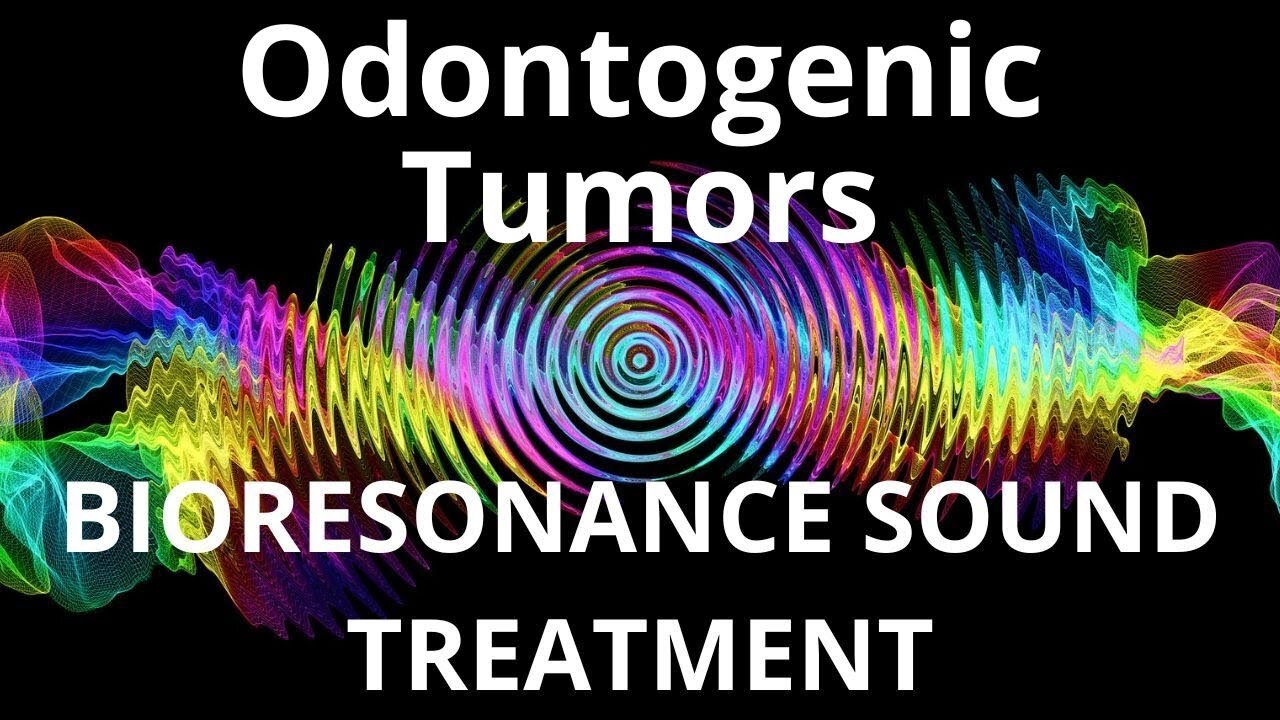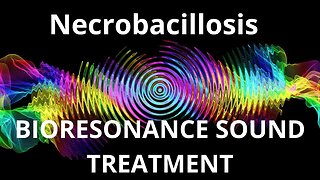Premium Only Content

Odontogenic Tumors _ Bioresonance Sound Therapy _ Sounds of Nature
#Sounds_of_nature#sound_vibrations#sound_therapy
Odontogenic tumors are a type of tumor that arises from the tissues of the teeth and jaws. These tumors are relatively rare, but they can be quite aggressive and have the potential to cause significant damage if left untreated. Traditional treatment methods for odontogenic tumors typically involve surgery, chemotherapy, and radiation therapy. However, there is a growing interest in alternative therapies, such as bioresonance sound therapy.
Bioresonance sound therapy is a form of alternative medicine that uses sound waves to help heal the body. The theory behind bioresonance therapy is that every cell in the body has its own unique electromagnetic frequency, and by using specific sound frequencies, it is possible to tune into and manipulate these frequencies to promote healing.
Research has shown that bioresonance sound therapy can be effective in treating a wide range of conditions, including chronic pain, anxiety, and depression. It has also shown promise in treating cancer, including odontogenic tumors.
There are several ways that bioresonance sound therapy can be used to treat odontogenic tumors. One approach is to use specific sound frequencies to disrupt the growth of tumor cells. This is based on the idea that cancer cells have a different electromagnetic frequency than healthy cells, and by using the right frequency, it is possible to disrupt the cancer cells while leaving healthy cells intact.
Another approach is to use bioresonance therapy to stimulate the body's natural healing processes. This can involve using specific sound frequencies to boost the immune system, increase circulation, and promote tissue regeneration. By doing so, the body is better able to fight off the cancer cells and heal itself.
One of the benefits of bioresonance sound therapy is that it is non-invasive and has few side effects. Unlike traditional cancer treatments like surgery and chemotherapy, bioresonance therapy does not require any incisions or the use of toxic drugs. This makes it a safer and more gentle alternative for patients who may not be able to tolerate traditional cancer treatments.
In conclusion, bioresonance sound therapy is a promising alternative therapy for the treatment of odontogenic tumors. While more research is needed to fully understand its effectiveness and safety, it has shown promise in disrupting the growth of tumor cells and stimulating the body's natural healing processes. As with any cancer treatment, it should always be used in conjunction with traditional treatments.
TO ACHIEVE A POSITIVE RESULT, DAILY LISTENING TO VIDEOS IS REQUIRED.
I wish you health and prosperity!
You can purchase unique medicines in my store:
https://store11998180.company.site/
You have the opportunity to support the channel:
https://destream.net/live/RadSiarAl/donate
-
 29:59
29:59
BIORESONANCE SOUND THERAPY
8 days agoNecrobacillosis _ Sound therapy session _ Sounds of nature
68 -
 14:47
14:47
GritsGG
13 hours agoRumble Tournament Dubular! Rebirth Island Custom Tournament!
7.44K2 -
 LIVE
LIVE
Lofi Girl
2 years agoSynthwave Radio 🌌 - beats to chill/game to
200 watching -
 54:47
54:47
Side Scrollers Podcast
1 day agoSide Scroller Presents KING OF THE KART | MASSIVE MARIO KART TOURNAMENT
108K6 -
 2:39:02
2:39:02
The Pascal Show
14 hours ago'HE'S THE DEVIL!' Former Mother In Law Breaks Silence On Jake Haro & Emmanuel Haro Case
3.68K1 -
 4:47:50
4:47:50
The Why Files
2 days agoCOMPILATION: UFOs and Aliens Vol.2 | They are NOT our friends
37.9K36 -
 5:30:10
5:30:10
SpartakusLIVE
9 hours ago#1 Verdansk Sniper gets HACCUSATIONS because of INSANE Headshots
48.5K4 -
 46:18
46:18
SB Mowing
2 days agoShe was LOSING HOPE but this SURPRISE CHANGED EVERYTHING
33K40 -
 LIVE
LIVE
ItsLancOfficial
8 hours agoWE LIVE 🔴WE LIVE 🔴 SUNDAY SUNDAYS!!!!!!! TARKOV
493 watching -
 4:09:32
4:09:32
EricJohnPizzaArtist
6 days agoAwesome Sauce PIZZA ART LIVE Ep. #59: Are You Ready for some FOOTBALL with GameOn!
30.8K7